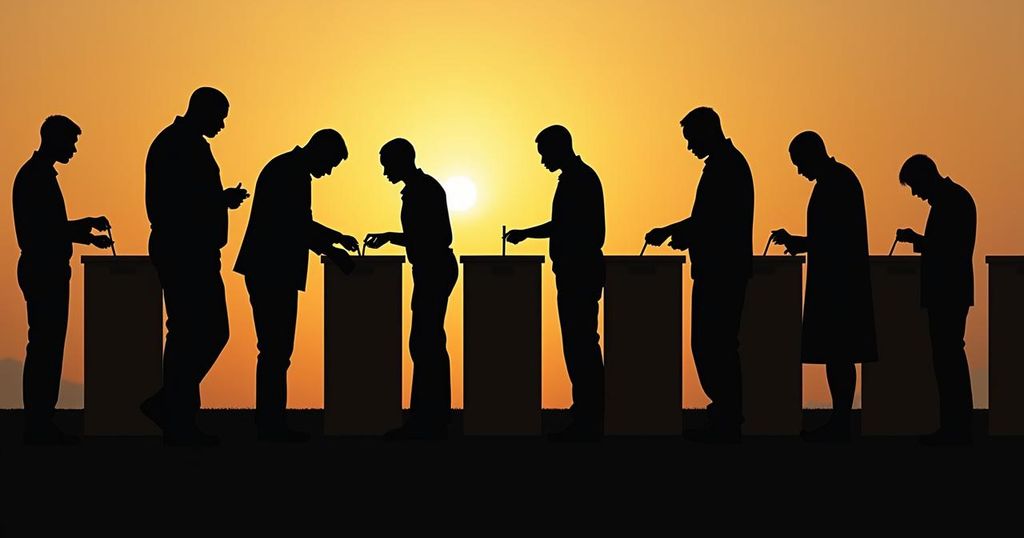Mozambicans Cast Votes in Pivotal Presidential Election
Mozambicans are voting in a general election critical for the nation’s future, with Daniel Chapo as the ruling Frelimo party’s presidential candidate. Outgoing President Filipe Nyusi casts his vote, urging peaceful participation. The election marks a historic moment as Frelimo presents a candidate untouched by past corruption and independence struggles. With poverty and insurgent violence looming, the elected president will face significant challenges ahead.
In a significant event for the nation, Mozambicans are participating in a general election that could shape the future political landscape of the country. The ruling party, Frelimo, has maintained power for over fifty years and is anticipated to continue its dominance despite the upcoming changes. The current President, Filipe Nyusi, fulfilling his two-term limit, was one of the early voters when polling stations opened at 07:00 local time. Daniel Chapo, the Frelimo presidential candidate who is relatively unknown, presents himself as a figure of new beginnings. His opponents include independent candidate Venâncio Mondlane, Ossufo Momade from the main opposition party Renamo, and Lutero Simango from the Mozambique Democratic Movement (MDM). This election marks a pivotal point as it is the first time that a Frelimo candidate has not participated in the struggle for independence. Chapo, born two years after Mozambique achieved independence from Portugal in 1975, is perceived as relatively untainted by the party’s past corruption scandals. President Nyusi voted in the capital city, Maputo, where he urged voters to remain patient and peaceful throughout the election process. He expressed, “I would also ask that no group of citizens agitates or threatens others, that everything happens in peace and tranquillity and that we avoid announcing the results ahead of time.” With over 16 million registered voters, the mood among the youth appears hopeful, with many eager for change. A 22-year-old student expressed optimism regarding the election, highlighting concerns about the country’s future. The incoming president faces formidable challenges, particularly in addressing the dire economic state where 62% of the population lives in extreme poverty. The nation, still reeling from the aftermath of a civil war that ended in 1992, had once looked to economic recovery through the exploitation of natural gas reserves. However, an Islamist insurgency in Cabo Delgado has hampered significant development in this area. The vote counting will commence post the 18:00 local closing time with formal results expected in two weeks.
Mozambique has undergone significant political changes since gaining independence from Portugal in 1975. The ruling Frelimo party has dominated the political arena for decades. As the country approaches this election, it marks a critical juncture in its political history, especially with a candidate who did not participate in the independence war. This transition comes during challenging times for Mozambique, exacerbated by high poverty rates and violence from insurgent groups.
The recent elections in Mozambique represent a landmark moment for the nation’s political evolution, with the potential for a shift in leadership for the first time in many years. As voters cast their ballots, they express hopes for economic improvement against a backdrop of high poverty and ongoing conflicts. The outcome will likely determine the direction of Mozambique’s future amid pressing challenges.
Original Source: www.bbc.com




Post Comment